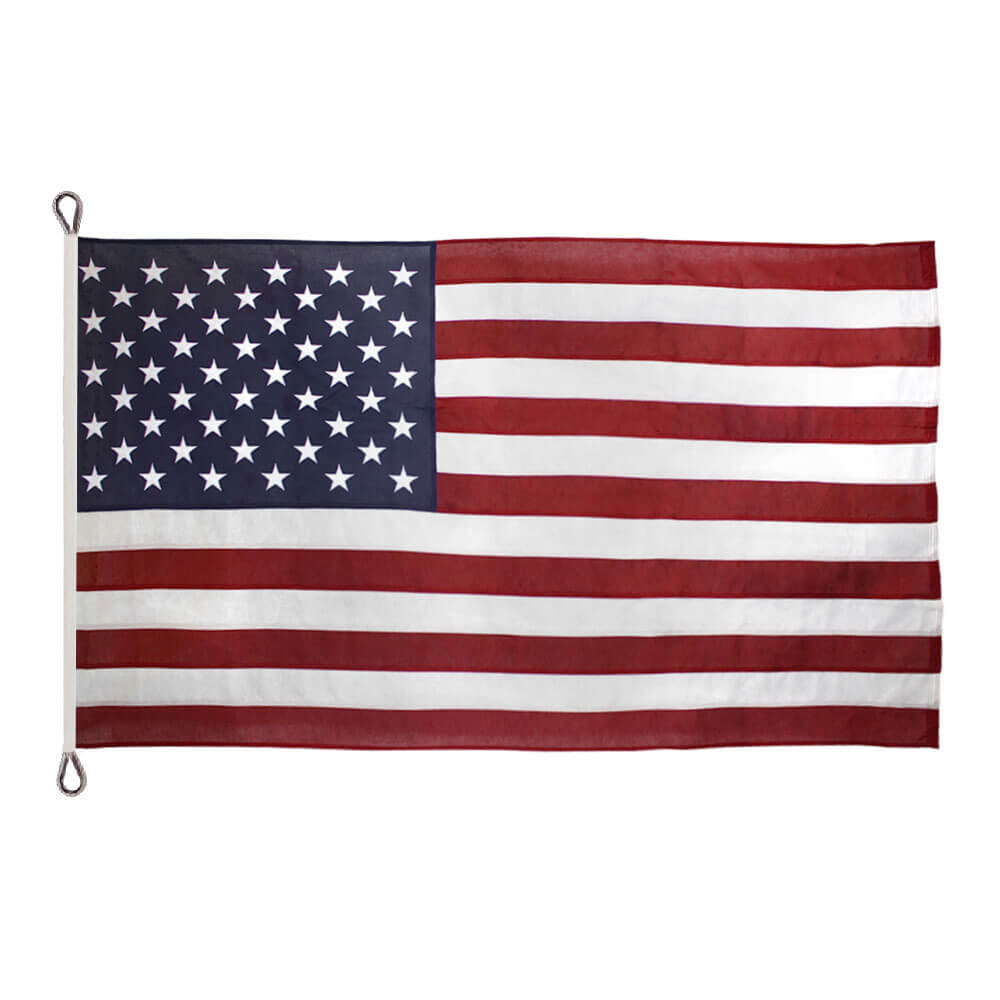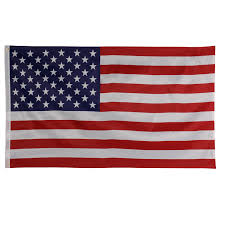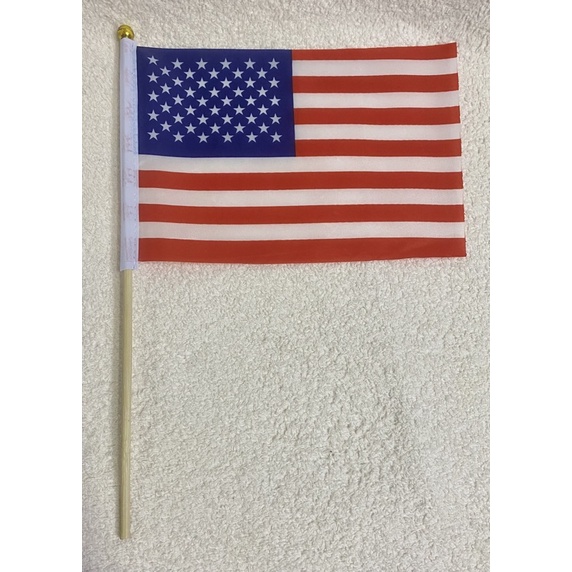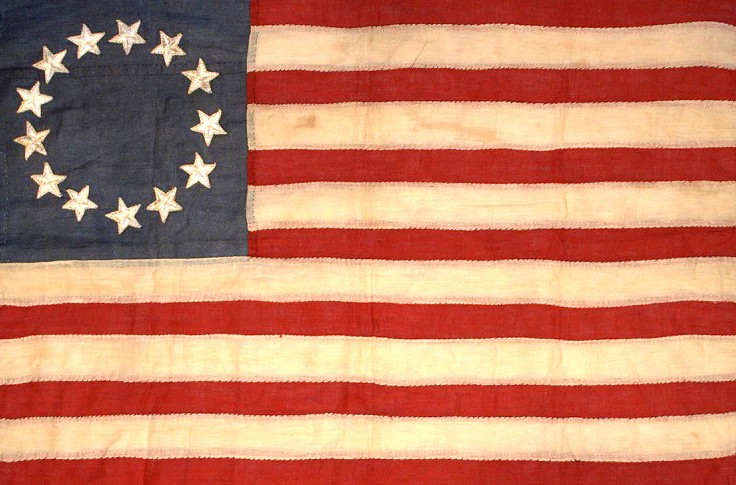We are flag enthusiasts and heritage lovers, so proudly shall we salute the raising of the American flag! They are symbols nearest the heart of freedom and liberty to justice and unity. And it's not such ideals that these should stand on; it calls upon our realization to answer questions pressing now: can we, too, honor Earth, as while its dear colors lift, we raise to its flag's heights? A new, greener generation of eco-friendly American flags might do that and much more. Learn with us just how we can proudly wave our colors to lighten the footprint upon this Earth.
The Traditional Flag Materials and Their Impact On the Environment
Most flags are made from nylon, polyester, or cotton. That's been fine for a century. It fills the bill: doesn't mind bad weather, stays fine marching down Main Street in a parade or tied to the porch. But those fabrics represent far from the best on offer.
The Environmental Toll of Common Flag Fabrics
If you're like me, you've probably displayed your flag proudly in all seasons—rain, shine, and snow. However, these flags can fade or tear over time, eventually making them unsuitable for continued use. Nylon and polyester flags, in particular, are made from synthetic fibers that don't break down easily in the environment. When these flags are discarded, they may stay in landfills for decades, and nobody would love to see the growing plastic pollution.
Besides the above problems, polyester and nylon consume tremendous amounts of raw materials. Polyester or nylon utilizes several resource-intensive processes involving lethal chemicals that prove fatal to environmental health. This would mean that when the material was challenging, even then, decades-spanning polyester or nylon was like a single thread apart from being almost entirely unecologic compared with the real stuff.
Cotton: A More Natural Alternative—but Not Perfect
Traditionally, flag material has always been preferred because it retains its old charm and is natural; however, most conventionally farmed cotton hugely relies on pesticides and taps upon intensive amounts of water resources, hurting the environment and human labor. So, though it may look better, concern over the environment would be valid with cotton, too.
Eco-Friendly American Flag Materials: A Greener Way to Wave Your Patriotism
Suppose you want an alternative with an ecological American flag. In that case, there is a sea full of materials that are as durable or even mightier than the original. The eco-friendly American flag material is apt for those flag lovers who want to save the planet but never want to do without their flags.
Organic Cotton
 Nature is organic and grown in a way that promotes improving soil health and nearly impacts the environment. Organic cotton production looks infinitely much better for the environment, water, and everyone involved in its manufacture than non-organic cotton with its mass production of synthetics for fertilizers and pesticides. It's a little pricey upfront but fantastic for those who want to feel that their clothes are older with cotton, considering there is no dispute about how recycled polyester might affect the Earth.
Nature is organic and grown in a way that promotes improving soil health and nearly impacts the environment. Organic cotton production looks infinitely much better for the environment, water, and everyone involved in its manufacture than non-organic cotton with its mass production of synthetics for fertilizers and pesticides. It's a little pricey upfront but fantastic for those who want to feel that their clothes are older with cotton, considering there is no dispute about how recycled polyester might affect the Earth.
Recycled Polyester
 Another exciting feature of flag-making is using recycled polyester, a product from broken plastic bottles in the environment. They're giving life to waste rather than waiting for it to collect in a landfill. It's very resistant to weather conditions and cheaper than most eco-friendly American flag materials, making it ideal for flags. When it needed it, the recycled polyester-made flag had withstood very harsh seasons reasonably. I am proud of it for its own sake because it prevents plastic waste from going into landfills. It is starting to get easy and environmentally friendly to go carbon neutral as the manufacturers of flags have started their options with recycled polyester.
Another exciting feature of flag-making is using recycled polyester, a product from broken plastic bottles in the environment. They're giving life to waste rather than waiting for it to collect in a landfill. It's very resistant to weather conditions and cheaper than most eco-friendly American flag materials, making it ideal for flags. When it needed it, the recycled polyester-made flag had withstood very harsh seasons reasonably. I am proud of it for its own sake because it prevents plastic waste from going into landfills. It is starting to get easy and environmentally friendly to go carbon neutral as the manufacturers of flags have started their options with recycled polyester.
Bamboo Fiber Flags
 Recently, bamboo emerged as one of the favorite natural products used in many eco-friendly items, and flags aren't an exception. Bamboo fiber flags are extreme, biodegradable, and quite different from synthetic fibers; bamboo decomposes, automatically giving it an edge as the best eco-friendly product for someone who might need to get rid of his flag responsibly. I was amazed to find a bamboo flag for an environment fair near our house. These flags are pretty sleek and colorful. Even better, the flags have an air of durability without a heavy burden on the environment.
Recently, bamboo emerged as one of the favorite natural products used in many eco-friendly items, and flags aren't an exception. Bamboo fiber flags are extreme, biodegradable, and quite different from synthetic fibers; bamboo decomposes, automatically giving it an edge as the best eco-friendly product for someone who might need to get rid of his flag responsibly. I was amazed to find a bamboo flag for an environment fair near our house. These flags are pretty sleek and colorful. Even better, the flags have an air of durability without a heavy burden on the environment.
Hemp Flags
 This just so happens to be one of the oldest materials available for use as fabric, and it has a pretty good reason to be most frequently used: it's tough, it takes only a minimal amount of water to create, it repels pests without chemicals, plus it is biodegradable. Although hemp flags do not gain much popularity in the market like those made from nylon or polyester flags, hemp flags are fabulous for anyone looking to make a difference toward saving the Earth, but with a bit of uniqueness.
This just so happens to be one of the oldest materials available for use as fabric, and it has a pretty good reason to be most frequently used: it's tough, it takes only a minimal amount of water to create, it repels pests without chemicals, plus it is biodegradable. Although hemp flags do not gain much popularity in the market like those made from nylon or polyester flags, hemp flags are fabulous for anyone looking to make a difference toward saving the Earth, but with a bit of uniqueness.
All these environmental happenings in life can make hemp flag entrances, with bonuses added to make them look more beautiful. The reason is that the mighty strength of these strands makes a nearly good flag. They are hanging proud, unfading even outside of any environment.
Eco-friendly dyes and inks
 Irrespective of the material you will choose to assemble your green American flag, whichever color dye or ink you'll be using as you color such material is a decision you will make. Many conventional dyes and inks comprise toxic agents and are cruel to the globe. Fortunately, today, just so many earth-friendly options are available.
Irrespective of the material you will choose to assemble your green American flag, whichever color dye or ink you'll be using as you color such material is a decision you will make. Many conventional dyes and inks comprise toxic agents and are cruel to the globe. Fortunately, today, just so many earth-friendly options are available.
Almost all the companies that are utilized these days have shifted to the use of water-based or vegetable-based dyes, so, therefore, there isn't any sharp chemical used over here; it reduces some pollution factors also because those dyes are mild to the textile and, so your flag is going to long last till their age. Add the safety: check under; print on it "non-toxic, biodegradable dye, and so forth so that it gives you, your every fiber of the flag, absolutely non-toxic, biodegradable, and fully sustainable.
Eco-Conscious Flag Disposal
Each flag should experience the right time of death and simultaneously die in an orderly manner, especially if it's old, as it must retire.
Recycling: Give Your Flag a Second Life
If made of synthetics like nylon or polyester, then the flag could have unique treatments so it may be recycled. Some flags made from synthetics would be acceptable in most recycling centers or can be directed to which organizations could take them. The recycling rate of flags is incredibly low; there are still more firms that have succeeded in recycling their flags without destroying their recyclable value.
Donation and Upcycling: Give Your Flag a New Purpose
Donate your flag to a local school, veterans' organization, or community center if it is in good enough shape. Hundreds of venues accept retired flags and either hang them with honor or upcycle them as material for a future project.
Another beautiful repurposing would be to make the fabric of your flag into an entirely new entity. I have been privileged to witness magnificent artistic geniuses sew used flags into quilts, handbags, or framed art to give life to emblems and honor their symbolic meaning.
Composting and Sustainable Flag Retirement Ceremonies
If it's biodegradable and made of organic cotton, hemp, or bamboo, toss the flag to the compost pile when it becomes unserviceable. Beautiful in this, here is ensuring the plastic parts of a flag have to be drawn manually because parts such as biodegradable material would be the only grommets or the metal ring coming from there. Honestly, now that they even resort to ceremonial composting where the flag assumes an apt retirement, suitably honored with ritual on composting, fans have turned quite overzealous about this feature.
Conclusion
As flag enthusiasts, we would hold those ways, and our show of patriotism would make sense if we hoist a United States of America flag. We may now ponder harder how the materials we use affect our Earth and how we dispose of them.
It is a simple act that brings profound celebrations to our countries and makes a difference for our world by being eco-friendly American flags. The next time you want a flag, let that motivate you to go green. Your country and the planet would indeed thank you for that.
Go Green with Your Patriotism: The Growing Trend of Eco-Friendly American Flags